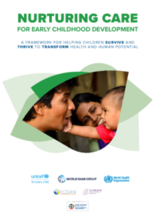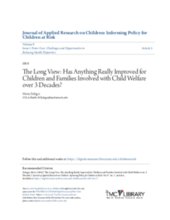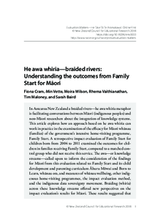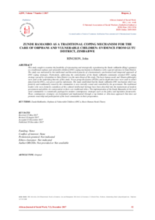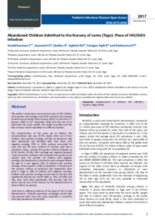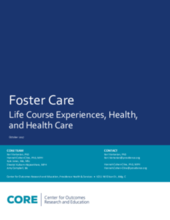Displaying 111 - 120 of 244
The aim of this study was to compare the health of 4- to 6-year-old children in out-of-home care (OOHC) in Southern Tasmania, Australia with their peers.
The Nurturing Care Framework provides a roadmap for action. It builds on state-of-the-art evidence about how early childhood development unfolds and how it can be improved by policies and interventions.
This paper reflects on: what’s better or not after 30 years; whether legislation and financing are aligned with child welfare’s goals of safety, permanency and well-being; and what remains to be done to improve the outcomes of children and youth in foster care or otherwise involved with child welfare.
The Community Opportunity Map is a tool that allows users to see localized indicators connected to community health and maltreatment prevention.
This paper presents the results of a national survey describing Maternal and child protection services (“PMI”) home visitation services and their local implantation in France.
This article explores how an approach based on he awa whiria can work in practice in the examination of the efficacy for Māori whānau (families) of the government’s intensive home-visiting programme, Family Start.
This study sought to examine the feasibility of rejuvenating and strategically repositioning the Zunde raMambo (King’s granary) as a traditional orphans and vulnerable children (OVC) coping mechanism in Zimbabwe with a special reference to Gutu District.
The focus of this study is to explore the role of lay health workers in a community organization providing palliative care to orphans and vulnerable children affected by HIV/AIDS, located in rural Bronkhorstspruit, Gauteng Province of South Africa.
The authors conducted a case-control study of 102 children with positive HIV serology out of 956 received and screened at admission at Sainte Claire Nursery (SCN) in Lomé from 1st January 2000 to 31st December 2014 with the aim of to determine the social profile, the weight evolution and the fate of these children admitted in a difficult situation.
Health Share of Oregon collaborated with the Center for Outcomes Research and Education (CORE) to explore how the foster care experience influences people’s lives and their interactions and attitudes about health and health care.

